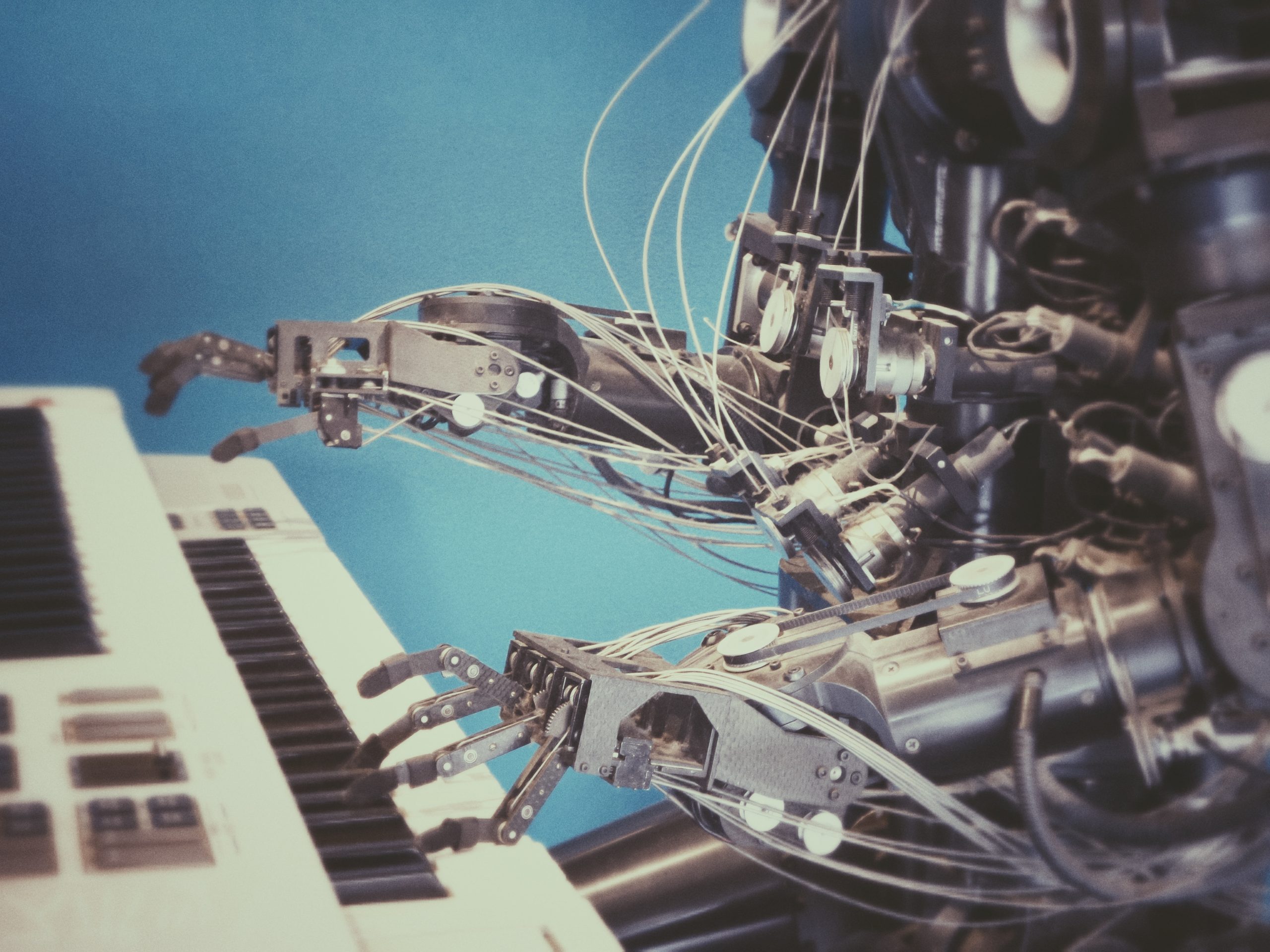Welcome to the rhythmic realm where algorithms compose symphonies and melodies unfold in the digital domain. In this exploration of ”How AI Music Works”, we’ll delve into the intricate harmony of artificial intelligence and music, unravelling the secrets behind algorithms that give birth to captivating tunes. From neural networks orchestrating compositions to the fusion of creativity and code, join us on a journey through the fascinating landscape where technology and music converge.
How AI Music Works
In short, AI Music is a powerful and creative tool that can be used to create an entirely new soundscape. It often combines elements of traditional musical composition with modern technology and artificial intelligence algorithms, allowing for more complex pieces of music than ever before possible.
How AI Music Works – Fun Facts
- London Symphony Orchestra – In 2018, a composition created by an AI algorithm was featured in a concert performed by the London Symphony Orchestra
- AI Music Creation Platforms – AI music is becoming increasingly popular among music producers, with several AI music creation platforms emerging in recent years, such as Amper Music, AIVA, and Jukedeck
- Music Therapy – Researchers are exploring the potential for AI music to assist with music therapy and health and wellness. Studies have shown that AI-generated music can have a positive impact on cognitive and emotional wellbeing
- Controversy – The use of AI-generated music is not without controversy, with concerns raised about the potential for AI to replace human musicians
- Non-Western Genres – AI music is not limited to Western classical music genres. Research is also being conducted into the potential for AI to generate music in non-Western genres such as Chinese and Indian classical music
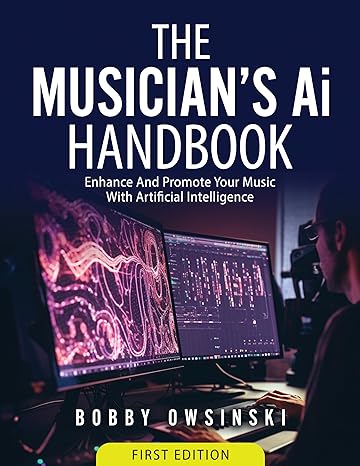

The Musician’s AI Handbook
Enhance And Promote Your Music With Artificial Intelligence. The Musician’s Ai Handbook is a comprehensive look at how musicians, artists, songwriters, producers, and anyone in the music business can use artificial intelligence as a highly creative tool to generate new ideas and help to promote their music.
Overview of Artificial Intelligence and its Role in Music Creation
Artificial Intelligence (AI) is a broad area of computer science which focuses on creating intelligent machines that can think and act like humans.
AI has been used in various applications such as speech recognition, natural language processing, and facial recognition.
AI can also be applied to music-making, allowing computers to create compositions with the same level of complexity as those made by humans.
AI Music Algorithms and Techniques
When creating AI music, algorithms are used to interpret the musical inputs and generate pieces that meet the desired criteria.
Some of the most popular AI algorithms used in this area include Markov Chains, genetic algorithms, deep learning, reinforcement learning, and recurrent neural networks.
Each of these algorithms has its own strengths and weaknesses, so it is important to understand which algorithm will best suit your needs.
Music Information Retrieval (MIR) and Generative Music Theory (GMT)
In addition to algorithmic approaches, AI music also utilizes techniques such as Music Information Retrieval (MIR) and Generative Music Theory (GMT).
MIR is used for analyzing existing musical pieces in order to extract features and generate new music.
GMT is used to create more complex compositions that take into account the relationships between different musical elements.
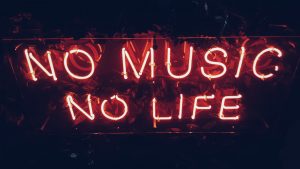

The combined use of algorithms, MIR and GMT allows AI music to be both creative and expressive, producing unique compositions that could not have been created by humans alone.
By using AI in music-making, musicians can explore new avenues of expression and creativity in their compositions.
AI music is an exciting, ever-evolving field that will continue to evolve as technology advances.
What is AI Music and How Does it Work?
AI music is a form of computer-generated music that uses artificial intelligence algorithms to create and compose musical pieces.
The algorithms used in AI music take inputs such as desired emotion or certain musical elements, and generate melodies, harmonies, rhythms, and even entire songs based on these inputs.
By using algorithms, techniques such as Music Information Retrieval and Generative Music Theory, AI music is able to produce unique compositions that could not be created by humans alone.
The final output can be used in many different ways – from creating soundtracks for video games or movies to providing backing tracks for singers and bands.
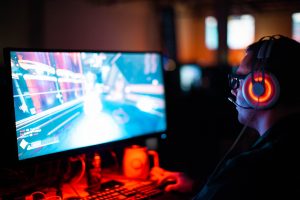

AI music is an emerging technology that has the potential to revolutionize the way we create and experience music.
Benefits of Using AI in Music Production
The use of AI in music production offers numerous benefits.
By automating and streamlining certain processes, AI can help musicians save time and effort when creating their compositions.
Also, AI allows for greater creativity by giving the musician access to a range of tools and algorithms that they would not have otherwise.
Different Types of AI-Generated Music
The type of AI-generated music that is created depends on the goals of the musician.
For example, some musicians may choose to create algorithmic compositions which utilize generative algorithms and techniques such as Markov Chains or deep learning networks
Others may opt for more traditional approaches such as music transcription, where existing audio files are converted into musical notation.
AI-generated music can also be used to create backing tracks for live performances, allowing musicians to explore new sounds and textures.
The possibilities are endless when it comes to AI in music production, making it an exciting field that will continue to develop as technology advances.
Exploring the Future of AI-driven Music
The use of AI in music has the potential to revolutionize the way we create and experience music.
AI-generated compositions can provide musicians with a range of tools and techniques that they would not have access to otherwise, allowing for greater creativity and exploration.
As technology advances, AI will continue to become more integrated into music production, allowing for ever more complex and intricate compositions
AI-driven music will continue to evolve and the future of music looks brighter than ever. We look forward to seeing what this amazing technology has in store!
At the same time, it is important to remember that AI music has both its advantages and disadvantages.
While AI can provide a range of tools and techniques that would not be available to human musicians, it is important to keep in mind the potential for misuse or abuse of the technology.
The use of AI in music production should always be done with care, as it has the potential to both create amazing works of art and cause harm if used inappropriately
It is up to all of us to ensure that the use of AI in music production continues to be a force for good, allowing musicians to explore new creative avenues and letting the world experience even more amazing works of musical art!
Tips for Creating Music with AI Technology
Creating music with AI technology can be an exciting and rewarding experience, but it is important to keep in mind a few key tips.
First and foremost, make sure that you have the proper software and hardware necessary for the task at hand.
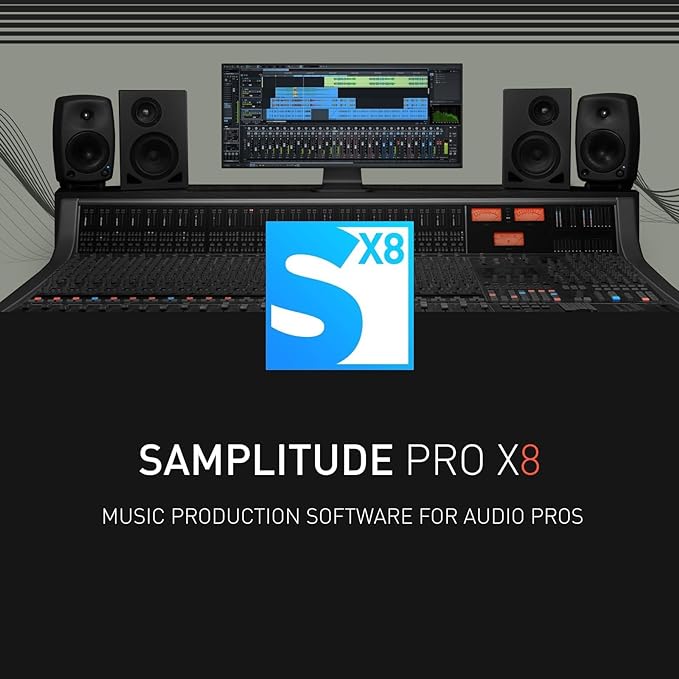

SAMPLITUDE Pro X8
The Master of Pro Audio | Recording, Editing, Mixing & Mastering | Audio Software | Music Program | for Windows 10/11 PC | 1 PC License
It is also important to keep up with trends in the AI music world and stay informed about the different AI tools and techniques available to you.
Another important tip is to never underestimate the power of experimentation – try out different techniques and approaches in order to find what works best for your particular project.
Finally, remember to have fun with it! Music production is an art form that should be enjoyed, so don’t be afraid to explore and experiment with different sounds and techniques.
With the right knowledge and tools, you can create amazing works of art using AI technology!
Examples of AI-Generated Music
The use of AI in music production has allowed for some amazing works of art to be created.
- “Aeolian Harp” – One example is a project from Google, which used an AI model to create an orchestral piece called “Aeolian Harp” that was performed by the London Symphony Orchestra.
- Sony’s Flow Machines Project – Another example is Sony’s Flow Machines project, which uses AI to analyze existing music and create original compositions in different genres.
- Amper Music – Finally, a startup called Amper Music has created an AI-powered songwriting assistant that can generate entire songs based on the user’s input.
These are just some of the amazing possibilities when it comes to AI-generated music, and we are sure to see even more amazing works as technology advances.
The use of AI in music production has the potential to revolutionize the way we create and experience music, so don’t be afraid to explore the possibilities and see what you can come up with!
AI-driven music is evolving rapidly, and we can’t wait to see what the future holds for this exciting technology.
Advantages & Disadvantages of Using AI Music
Using AI technology in music production comes with both its advantages and disadvantages.
On the plus side, AI can provide musicians with access to a range of tools and techniques that would not be available to them otherwise, leading to more creative possibilities and exploration.
It can also help automate certain parts of the music production process, allowing for more efficient production of music.
On the other hand, using AI can also lead to a lack of originality and creativity in the music produced, as well as potential legal issues if AI-generated content is used without proper licensing or attribution.
AI also has its own biases and may end up producing results that are not desirable or accurate.
Examples of Popular AI-Generated Music
In recent years, AI-generated music has become increasingly popular and can be heard in various genres of music.
- BENA – One example is BENA, a virtual artist created by Sony CSL Research Lab that produces techno-pop and EDM tracks.
- Magenta Project – Another example is Google’s Magenta project, which uses machine learning to generate various types of music, including hip-hop and pop.
- Sony’s Flow Machines – Finally, AI-generated jazz is becoming increasingly popular, with projects such as Sony’s Flow Machines showing that AI can be used to create beautiful jazz standards.
Overall, there are countless examples of how AI technology is being used to create amazing works of art, so don’t be afraid to explore and experiment with the possibilities!
Can Anyone Create AI Music?
The short answer is yes! With the right knowledge and tools, anyone can create AI music.
However, it’s important to keep in mind that creating AI-generated music requires a good understanding of both machine learning and music production techniques.
It also requires access to powerful computing resources and specialized software.
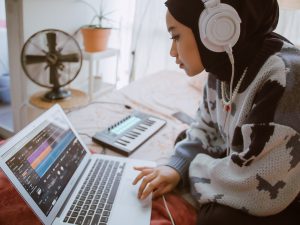

That said, if you’re willing to put in the time and effort, there are plenty of online tutorials and resources available to help get you started.
So if you’re interested in creating AI music, don’t be afraid to dive in and explore the possibilities!
How Long Does It Take to Create AI Music?
The amount of time it takes to create AI music varies based on the complexity of the project.
If you’re just starting out, you may be able to produce a simple AI-generated song or composition in just a few hours.
More complex projects may take days or even weeks to complete
Additionally, the amount of time it takes to train AI models and generate music can vary greatly depending on the resources available.
Overall, it’s important to keep in mind that creating AI-generated music can be a lengthy and complex process, but one that is well worth the effort!
Should I Start Creating AI Music?
If you have an interest in music production and a willingness to learn, then creating AI music could be a great way to explore your creativity!
However, it’s important to keep in mind that producing AI-generated music requires access to powerful computing resources, specialized software, and a good understanding of machine learning techniques.
If you’re not sure if AI music is for you, then it may be a good idea to start with simpler projects and work your way up.
So if you’re interested in experimenting with AI-generated music, don’t be afraid to dive in and explore the possibilities!
With the right resources and motivation, you just might be able to create something amazing.
Will AI Music Replace Normal Music?
No – AI music and traditional music will continue to coexist, as both have their own unique strengths.
AI-generated music can be used to automate certain parts of the music production process and create unique sounds that are difficult or impossible to achieve with traditional instruments.
On the other hand, traditional music still has its place and will continue to be appreciated for its emotional depth and human connection.
In the end, both types of music can complement each other in interesting ways, so it’s worth exploring both AI-generated music and traditional music when creating your own songs.
Overall, AI-generated music is a fascinating field that is rapidly evolving and shows no signs of slowing down.
How AI Music Works – Trusted Sources
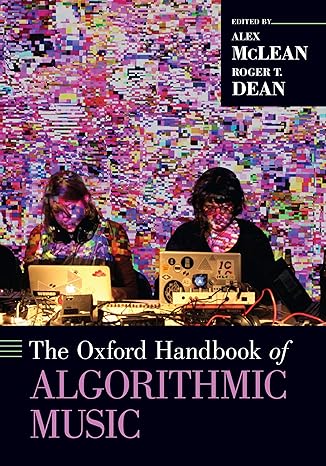

The Oxford Handbook of Algorithmic Music
With the ongoing development of algorithmic composition programs and communities of practice expanding, algorithmic music faces a turning point. Joining dozens of emerging and established scholars alongside leading practitioners in the field, chapters in this Handbook both describe the state of algorithmic composition and also set the agenda for critical research on and analysis of algorithmic music
- The Oxford Handbook of Algorithmic Music – This book explores the theory and practice of algorithmic music and includes contributions from leading researchers in the field. It covers a wide range of AI music topics, such as generative music and algorithmic composition.
- AI Music Education – This website offers courses and resources for those interested in learning about AI music. They have courses on topics such as machine learning and music composition, as well as a variety of articles and tutorials.
- Musical Machines – This podcast explores the intersection of music and technology, including AI music. Hosted by leading researcher and composer, Dr. David De Roure, Musical Machines covers a wide range of topics related to AI music, including interviews with prominent researchers and musicians.
- Google Magenta – Google’s Magenta project is an open-source platform for creating music and art using machine learning. The project provides tools and resources for artists and developers to experiment with creating AI-generated music.
- The International Society for Music Information Retrieval (ISMIR) – ISMIR is an organization dedicated to advancing research in music information retrieval (MIR), which includes topics such as AI music. They host an annual conference where researchers share their latest findings related to AI music and other MIR topics.
- OpenAI – OpenAI is an AI research and deployment company that also works on various AI music projects. They have a blog that covers their latest research related to AI music, as well as open-source tools and models that can be used to create AI-generated music.
How AI Music Works – Conclusion
The use of AI in music production is changing the way we create and experience music.
With the right knowledge and tools, anyone can start creating amazing works of art using AI technology.
We are sure to see even more amazing works of art created from AI-generated music in the future.
So if you’re interested in exploring this new area of creativity, don’t be afraid to dive in and explore the possibilities!
With enough dedication and hard work, you just might be able to create something beautiful.
Good luck on your journey into the world of AI music!

